Support
Need pre or post purchase support? Reach out HERE.
Warranty
Gearmo offers a 1 Year Warranty from the date of purchase. Read more in our Terms & Conditions.
USB to 3.3v TTL PIN Header Cable
$29.29
Windows 10 Serial UART TTL Cable with FTDI
This direct connect USB TTL adapter works with Windows 10 and earlier or Mac OS 10 X and Linux. Use the 5ft. serial UART cable and its 6-pin TTL connector as a regular serial device connection while the FTDI chip handles USB protocol. Your USB port powers the 3.3V output for transfer rates of 300 baud to 3 Mbaud at TTL levels.
- Embedded FTDI electronics and LED’s molded into the translucent USB jacket
- Perfect for embedded systems needing a serial connection
- Compatible with Windows 11 and lower systems
- Recognized as a standard Windows COM port
Product Documents
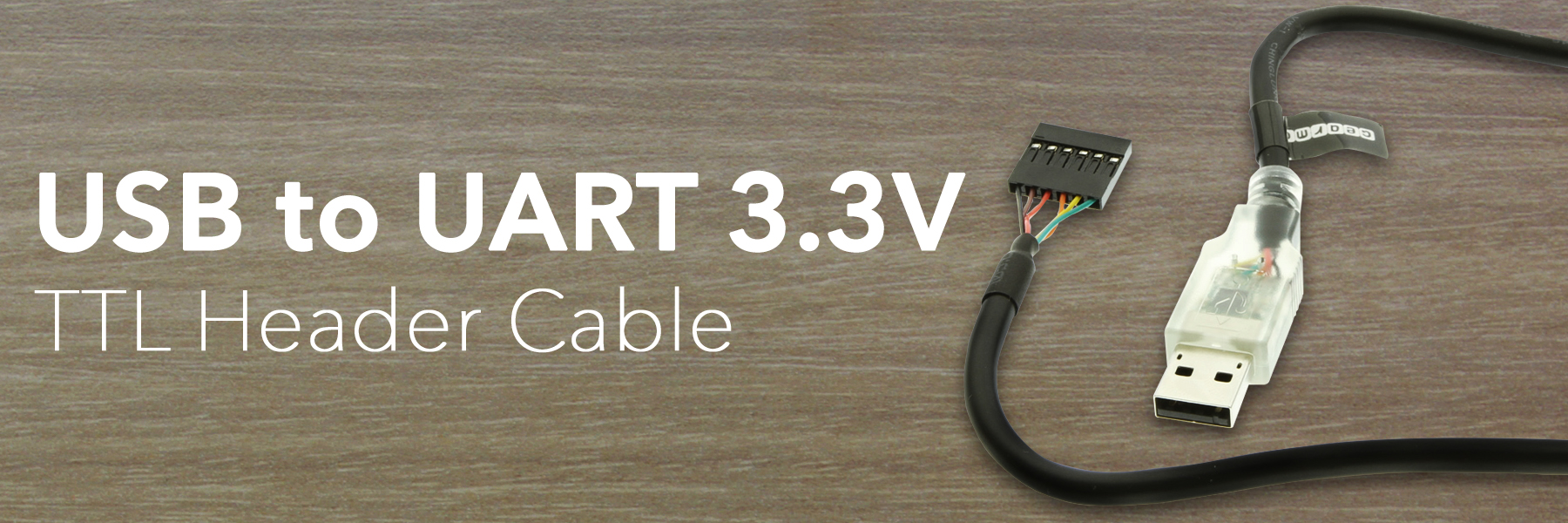
![]()
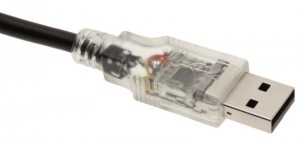
The 5 foot Serial UART USB to 3.3v TTL PIN Header Cable (TTL level) adapter allows you to connect your computer through the USB port and use it as a regular serial communication device with support for 7 or 8 data bits. All USB protocol is handled within this adapter using an FTDI Chip set. There is no other device or programming required.
![]()
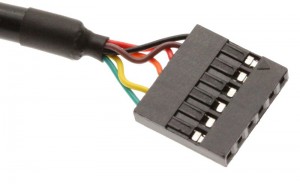 The USB to 3.3v TTL PIN Header Adapter Cable is perfect for embedded systems that require a serial connection to a computer and provides a USB to TTL Serial interface to 6-pin header. The board attaches directly to the USB bus via a standard type A receptacle connector. It shows up on any Windows computer as a standard serial COM port. Any applications that talk to this COM port is automatically converted to USB and back to UART on your target board.
The USB to 3.3v TTL PIN Header Adapter Cable is perfect for embedded systems that require a serial connection to a computer and provides a USB to TTL Serial interface to 6-pin header. The board attaches directly to the USB bus via a standard type A receptacle connector. It shows up on any Windows computer as a standard serial COM port. Any applications that talk to this COM port is automatically converted to USB and back to UART on your target board.
![]()
Additional features:
- The Cable provides a USB to TTL Serial interface to 6-pin header.
- Single board USB to asynchronous serial data transfer interface
- Entire USB protocol handled by the electronics in the cable USB
- UART interface support for 7 or 8 data bits, 1 or 2 stop bits and odd / even / mark / space / no parity
- Fully assisted hardware (RTS#/CTS#) or X-On / X-Off software handshaking.
- Data transfer rates from 300 baud to 3 Mbaud at TTL levels.
- +3.3V output allows external logic to be powered from the USB port
- VCC Output rating current Max. 50mA
- Transmit and receive LEDs
- UHCI / OHCI / EHCI host controller compatible
- Low USB bandwidth consumption.
6-Pin Header Assignment:
- Pin 1 GND
- Pin 2 CTS
- Pin 3 VCC
- Pin 4 TXD
- Pin 5 RXD
- Pin 6 RTS
![]()
OS Support:
- Windows XP, Windows Vista, Windows 7, Windows 8, Windows 10, Windows 11
- Linux
- Mac OS 10.X
Package Contents:
- USB to 3.3v TTL PIN Header Cable
- Latest FTDI Driver (available for download)
- GM-TTL3VT Product Manual (available for download)
Additional information
| Weight | .33 lbs |
|---|---|
| Dimensions | 3 × 3 × .75 in |
| Color | Black |
| Material | Plastic |
| Supported OS | Windows 11, Windows 10, Windows 8, Windows 7, Windows Vista, Windows XP, Linux, OSX |
| Cable Length | |
| UPC | 729440625832 |
| Interface | USB to 3.3v TTL |
| Alternate Part Number | SS-TTL3VT |
| Warranty | 1 year from date of purchase. |
| Certifications | RoHS, TAA |
| Country of Origin | Taiwan |

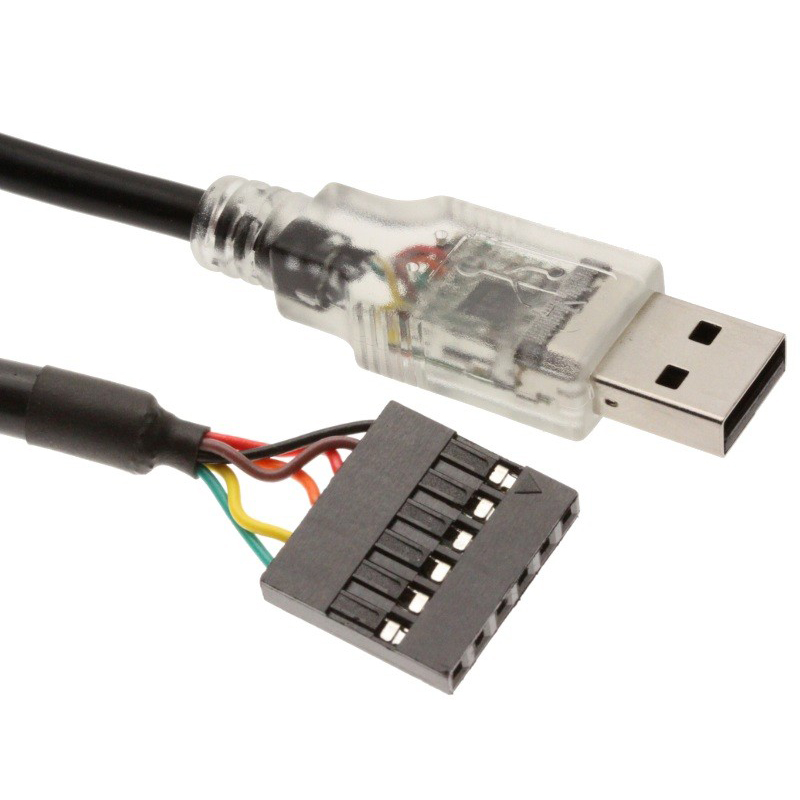
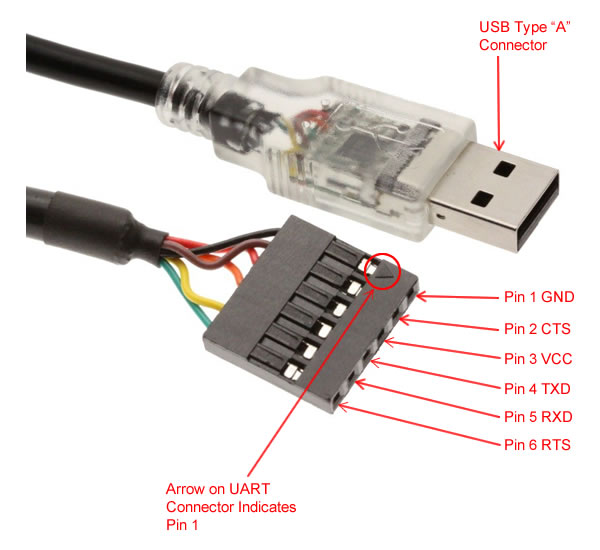
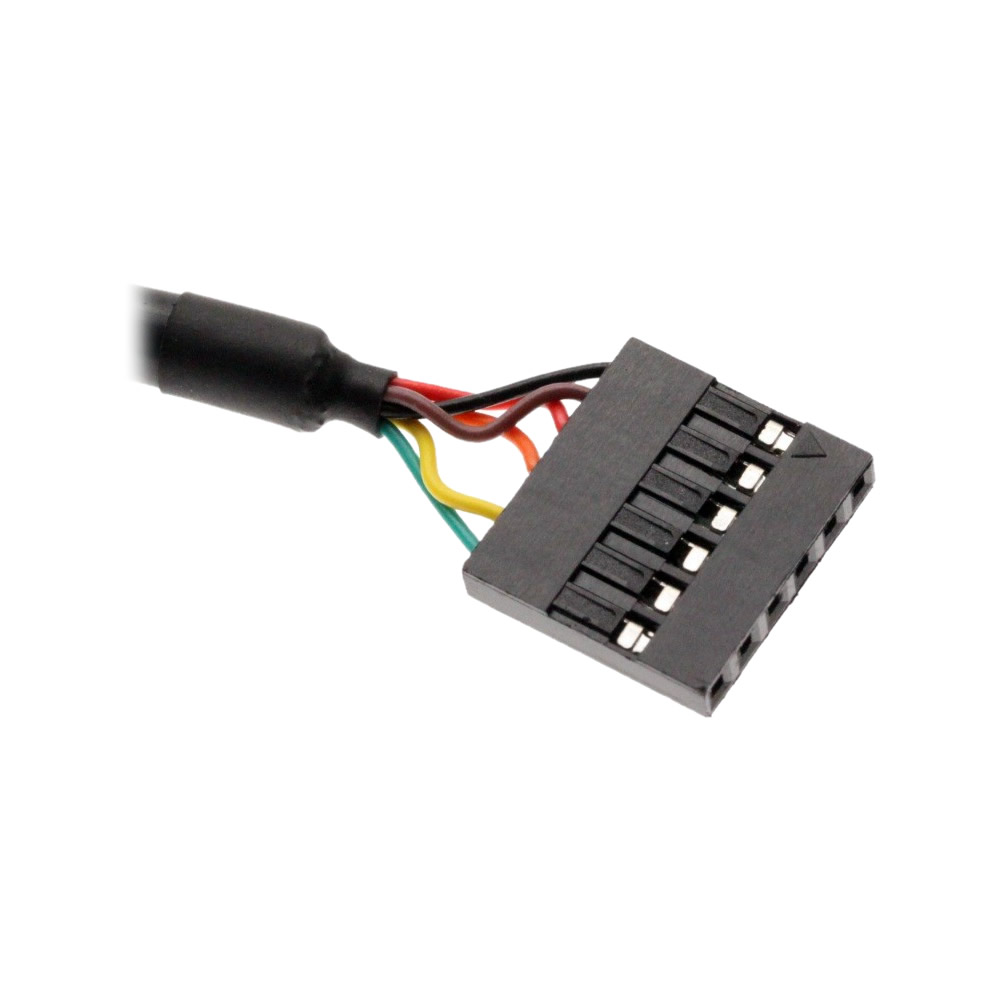
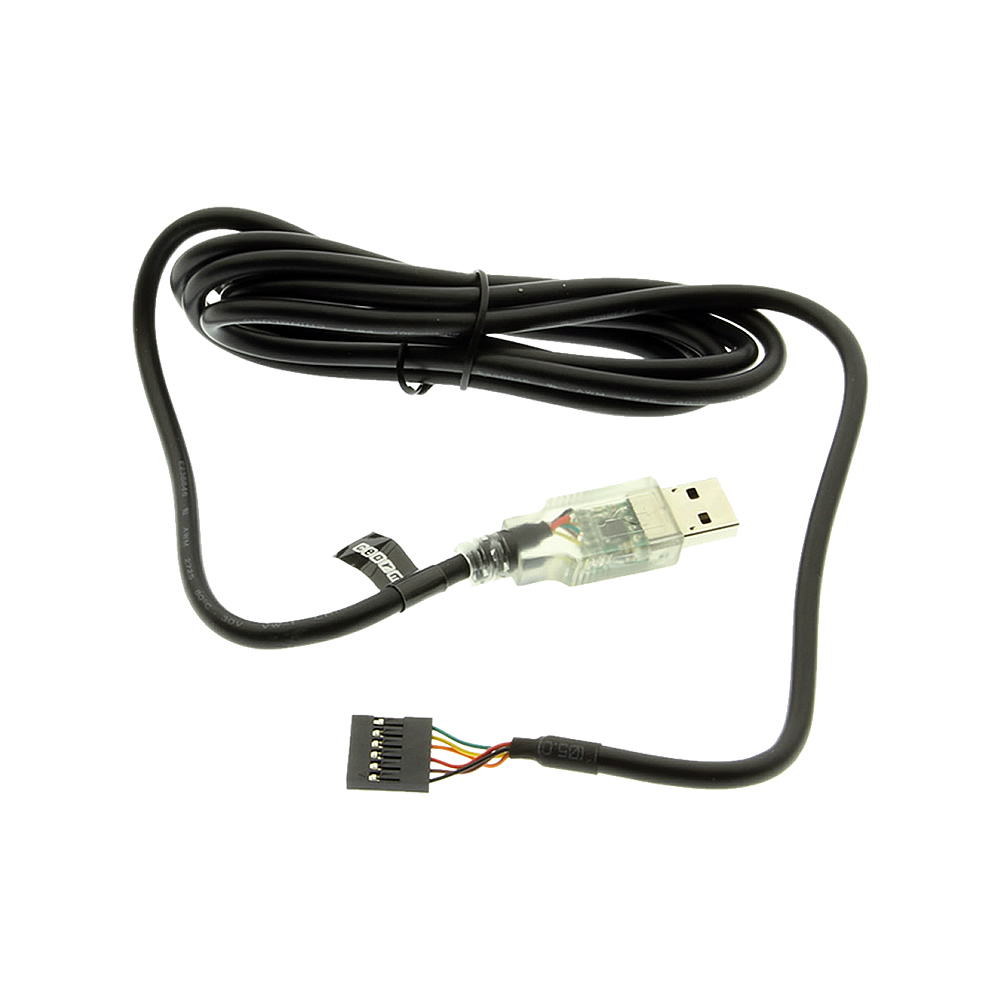


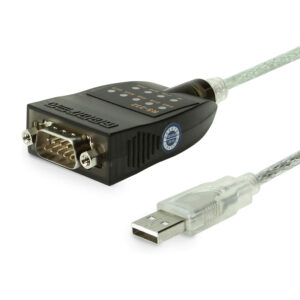
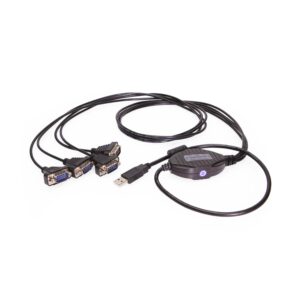
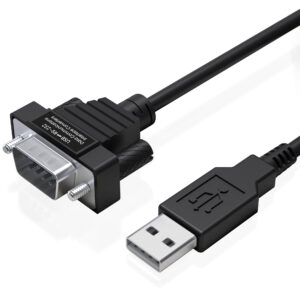
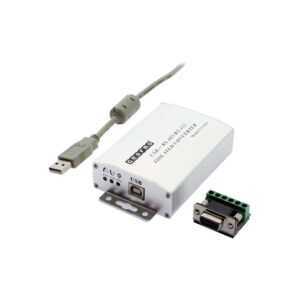


JRobert –
It plugs and plays.
I’ve made some of my home-built Arduinos to run on 3.3 volts, and until now, I to put a 3.3 volt regulator on those boards. With this cable, I get a regulated 3.3 volt supply (plus the USB <-> TTL serial conversion). No additional drivers were needed; the Mac recognized it immediately.
FLECOM –
Worked perfectly
Used this to make a custom cable for a device that needed a TTL level serial connection, worked perfectly and love the molded connector that lets you see the TX/RX LEDs on the board… do wish it came with some documentation as to what colors are what signal but was able to make an educated guess from the pin numbers listed in the description
Stephen McGill –
This is a solid interface to the FT232R chipset for bit bang mode. Tested on OS X with the native operating system driver as a virtual COM port and with the libftdi driver for bit bang mode.
Justin W. –
This worked as intended. This actually helped me save my router from the soft-bricking I caused by not paying attention to instructions…. And now everything works! Would buy-in-an-emergency again! Pros: +Easy to re-wire to fit your specific needs Cons: – Couldn’t find any!
KC –
Really nice to have this well made 3V3 serial adapter. It works well and easily configures into a port and stays there. Love that it lights up to show that there are messages going across the wire.
S. Lionel –
This worked perfectly with a MinnowboardMAX. Pay attention as to which pin is pin 1 (the one with the black wire, which is ground). I needed a FTDI driver for Windows (a web search for “FTDI drivers” will find them), and I used RealTerm (freeware on Windows) to view the output.
ToddPh –
I bought this on recommendation from the DD-WRT and Tomato forums after I managed to brick my new Netgear router. This cable was recognized by my Windows 8 laptop (if it doesn’t work on one USB port, try another one on the computer; mine didn’t work on the USB 3.0 port, but worked perfectly on the USB 2.0 port).
Speedy240 –
Used it to fix a Netgear R6300 wireless router. It was a convoluted process, the instructions to reload the firmware on the reference website were confusing at one point (pin connection) but it worked as advertised once I figured out the wiring issue.
Bruce D Lightner –
This device has an identical pin-out as FDDI’s TTL-232R-3V3 USB cable…
[…]
The 6-pin single-inline 0.1″ pitch connector is constructed as follows:
pin 1: black GND
pin 2: brown CTS (input to USB)
pin 3: red VCC (+3.3V power from USB, 75 mA max.)
pin 4: orange TX (output from USB)
pin 5: yellow RX (input to USB)
pin 6: green RTS (output from USB)
What I was shipped does not have a clear over-mold as shown on the Amazon Website. The plastic molding on my USB connector is quite dark—almost black. Nevertheless the green TX LED and the red RX LED are quite visible.
I bought three of these to use under MS Windows 7 and Linux. I’m going to buy more. For example. this device is useful for monitoring the console serial port on a Beglebone Black and/or Raspberry Pi. The latter requires an “adapter” cable.
The price of this device is better than the equivalent cable from FDDI and the function/quality is identical. In fact, because the cable diameter is not as thick, I like it better than FTDI’s.
P. Clarke –
I got this cable because of it’s RTS and CTS pins as well as being equipped with an FTDI chip and I definitely got what was in the description. Tested out on my JP1.x remote that needs the RTS line in addition to the usual TTL line – hence why I chose this cable over a cheaper 4-pin – and it works flawlessly. Build quality on first impression is good and looks to be on par with other well made cables but ultimately time will tell.
As far as all the comments about no pin out information included with the cable, I can only assume the issue has been rectified as the PDF on the included driver/manual disk has a slew of information including the very valuable pin outs that happen to be exactly the same (color and pin location) as the genuine FTDI brand cable.
Admiral Joey –
This worked for various devices, including ones with only TX, RX, GND, and VCC headers. If RTS and CTS aren’t present on your device’s TTL header, simply don’t connect them. Also recommend not bothering to connect VCC.
Included a CD with product data sheets, which can also be found on the web. Wiring is:
black GND
brown CTS
red VCC (3.3V)
orange TX
yellow RX
green RTS